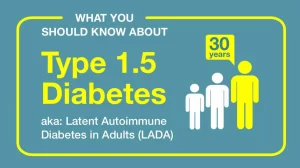Feed Your Gut Microbiome
By Dr. Renée Rivard
Did you know that your body is made up of trillions, yes TRILLIONS, of cells.
And do you know how many of them are human?
A measely 10%. Yep. Microorganism cells (aka: bacteria, microbes) outnumber your human cells by 10 to 1.
More than 10,000 species of microorganisms are a part of your very own ecosystem (inside and out), which also means they contribute more genes…approximately 360 times more…to your health and survival than your own human genes.
These are some of the results of the Human Microbiome Project conducted by the National Institute of Health’s National Human Genome Research Institute.
Your Microbiome
Now that scientists are understanding more about the significant role that your bacterial genes (microbiome) play in your health, it is becoming an increasingly intense area of study. A recent review was packed full of interesting morsels about your microbiome. (Galland, 2014)
One particular morsel is that over 95% of your microbiome is located in your large intestine, which is referred to as your “gut microbiome.”
It’s a fascinating world of microbial communication that governs your human cells.
Moreover, it has a profound effect on your immunity, behavior, moods, memory, sleep, and much more.
In a healthy gut, for example, microbial substances are released that regularly stimulate your immune system at a low level. This is good. It keeps your body primed and helps you fight off infection and heal.
When your immune system is stimulated, it releases several different chemicals (ie, cytokines) that affect how your entire body functions. For example, one of these cytokines affects non-rapid eye movement that leads to normal healthy sleep cycles.
Additionally, the microbes in your gut produce hormones and brain chemicals (neurotransmitters) identical to those produced by your human cells, including serotonin, dopamine, and noradrenaline.
Gut-Body Communication
So your gut bacteria are constantly “talking” to your body, but it’s not a one-way street.
Interestingly, when your body is under stress your adrenal glands produce adrenaline and noradrenaline. It just so happens that increased levels of noradrenaline increase the growth of certain bacteria in your gut to a level that can cause an infection.
This is one reason you may get sick more often when you are under chronic stress.
Your body also produces cortisol under stress…cortisol prevents many helpful cytokines from being produced, such as the one mentioned earlier that influences non-rapid eye movement.
This is why you might not sleep well if you are under chronic stress.
So you can see how this is definitely a two-way communication channel between your gut microbiome and your body.
Too Much of a Good Thing
While low levels of immune stimulation in your gut are good, chronic low grade or excessive stimulation can disrupt sleep, mood, memory, metabolism, and other functions.
Several factors can contribute to excessive stimulation. One of these is “leaky gut” syndrome in which the protective barrier of your gut becomes weakened and microbial substances “leak” outside your intestine into your body.
This launches an unhealthy immune response outside your gut and can lead to many different inflammatory conditions and responses that affect various tissues and organs.
Over stimulation of your gut-derived immune system can also occur from an imbalance in the types of microbes in your gut, drinking alcohol, and from Western “fast-food style” diets that are high in processed carbohydrates and unhealthy saturated fats.
And not only does the food you eat affect which of your gut microbes grow, or not grow, a healthy and happy microbiome increases the amount of nutrients you can absorb from the food you eat.
All important reasons to feed your gut, and your microbiome, with healthy nutritious food!
References National Institute of Health News Release, June 13, 2012. Accessed on March 16, 2015 athttp://www.nih.gov/news/health/jun2012/nhgri-13.htm.
Galland L. The gut microbiome and the brain. J Med Food. 2014;17(12):1261-1272.
FROM THE AUTHOR: Hi, I’m Dr. Renée Richard. I am the Founder & CEO of Is Disease Hereditary? I’m dedicated to helping people understand how to use food to impact their genes, control weight and prevent disease.As a Doctor of Pharmacy and Medical Information Specialist, I have been providing evidence-based medical information since 1996 to both clinicians and consumers, most recently specializing in nutrigenomics (the field in medicine that explores how food impacts your genes). Please feel free to reach out to me if you have any questions about food, genes and health at [email protected]


